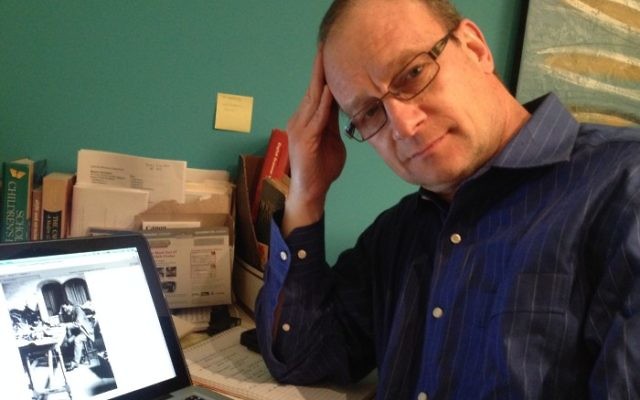Living in The South, But Not a Southerner
I have lived in Atlanta for nearly 32 years, yet in no way do I consider myself a Southerner.
Dave Schechter is a veteran journalist whose career includes writing and producing reports from Israel and elsewhere in the Middle East.
I have lived in Atlanta for nearly 32 years, yet in no way do I consider myself a Southerner. I say this mindful that my three children were born here; that I eat fried green tomatoes, fried okra, and sweet tea (but not pecan pie, banana pudding or collard greens), and that I find it quaint when my wife is referred to as “Miss Audrey.”
Had we not hired on with the Cable News Network bureau in Jerusalem in the mid-1980s and later been invited to work for the network in Atlanta, I doubt that we would have moved here. I didn’t expect that we would remain this long, but such is life.
Several years ago, a local rabbi, himself a native Atlantan, asked how long I had been here. “I’m a relative newcomer,” I replied. “I’ve only been here 28 years.”
I enjoy telling the story of my parents’ visit to Atlanta, to attend a biennial of Judaism’s Reform movement, shortly after we moved here. My mother and I rode the train around Stone Mountain and listened to the recorded spiel. My mother, whose graduate degree was in history, asked, “Don’t these people know they lost that war?”
Having been here all of three weeks, I replied in mock horror, “Shhh. No, I don’t think they know that.”
In truth, I knew little about the South. Growing up near Chicago, the South was a scary place. Nothing good happened there, insofar as I could tell from the newspaper headlines and the evening network newscasts.
Neither my Jewish Sunday school nor public school education taught me about the 1915 lynching of Leo Frank or the 1958 bombing of The Temple. I was unaware of the complicated lives led by Southern Jews, as they related to both their gentile neighbors and their Northern cousins. I had yet to learn of the alliances between Jews and blacks during the civil rights movement and the tensions that tested those bonds.
When Savannah-native Andrew Feiler, who traces his Georgia family back to 1855, went off to the University of Pennsylvania in the early 1980s, he discovered a difference in how many of his classmates had learned American history. In their high school classes, the Northerners had reached the 1963 assassination of President John F. Kennedy. “We got to 1945,” Feiler, a photographer and management consultant, told me a few years ago. “They spent one week on the Civil War and didn’t know about Reconstruction. We spent three weeks on the Civil War and two weeks on Reconstruction.”
For most of our years here, my job demanded attention to national and international news. I rarely read the metro section of the newspaper. Not until about five years ago, when I began working as a freelance writer, did I begin to study local (particularly Jewish) history.
No region of this country is without its stained past; perhaps the South, just a bit more so. I feel no compunction as the South reckons with the consequences of its history. Nor am I compelled to defend the region when others posit a moral superiority based on the inferior ranking of Southern states in various measures of health, education and welfare.
In his book “There Was A Fire: Jews, Music, and the American Dream,” the musician and musicologist Ben Sidran writes of how Jewish immigrant composers, many of whom had never traveled beyond New York City, idealized the region in song. “For the Jews, the South wasn’t so much a place, but a premise: the concept of home, the idea of belonging somewhere,” said Sidran, who delivered an enlightening talk at this year’s Atlanta Jewish Music Festival.
I am not a Southerner. No matter how long I live here, that will not change. My father, a born-and-bred New Yorker, said it took at least 45 years before he felt like a Chicagoan. Musically, I still prefer “Sweet Home Chicago” to “Georgia On My Mind.”
My children, who range in age from 20 to 28, think of themselves as being from the “A-T-L” more than belonging to the surrounding region. In time, they may understand how the history of the South – and its unique Jewish culture – shaped the environment in which they were raised. As natives, their attitudes and talents will help determine its future.




comments